-
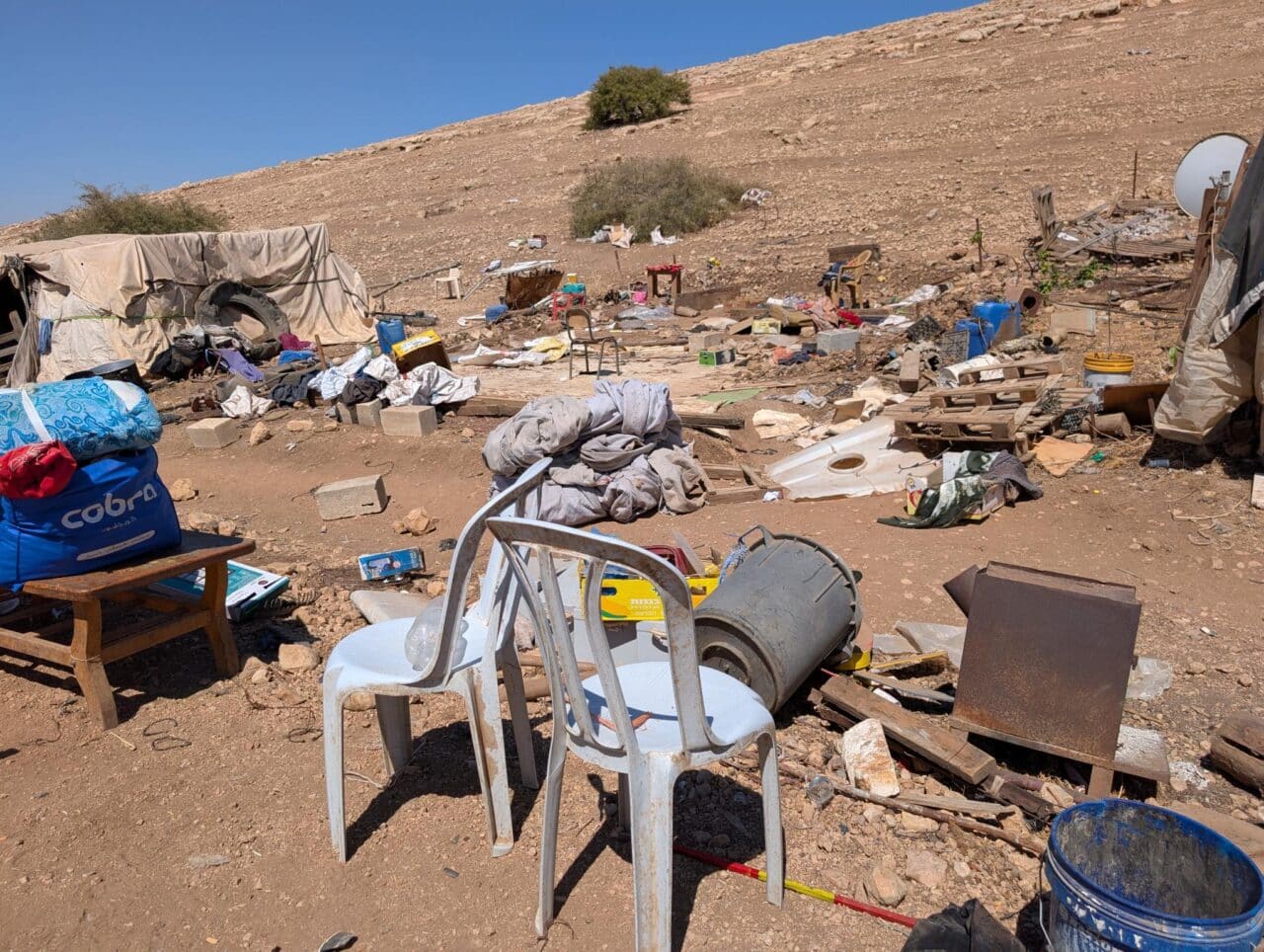
For immediate release: Forcible displacement continues in the Jordan Valley
July 2, Jordan Valley, West Bank – Israeli settlers, with the support of Israeli forces, are displacing once again families in Khirbet Samra, in the Northern Jordan Valley. On June 22, settlers threatened one of the families in the hamlet (who chose to remain anonymous fearing further retaliation) telling them they have eight days to leave their land. These settlers come…
-
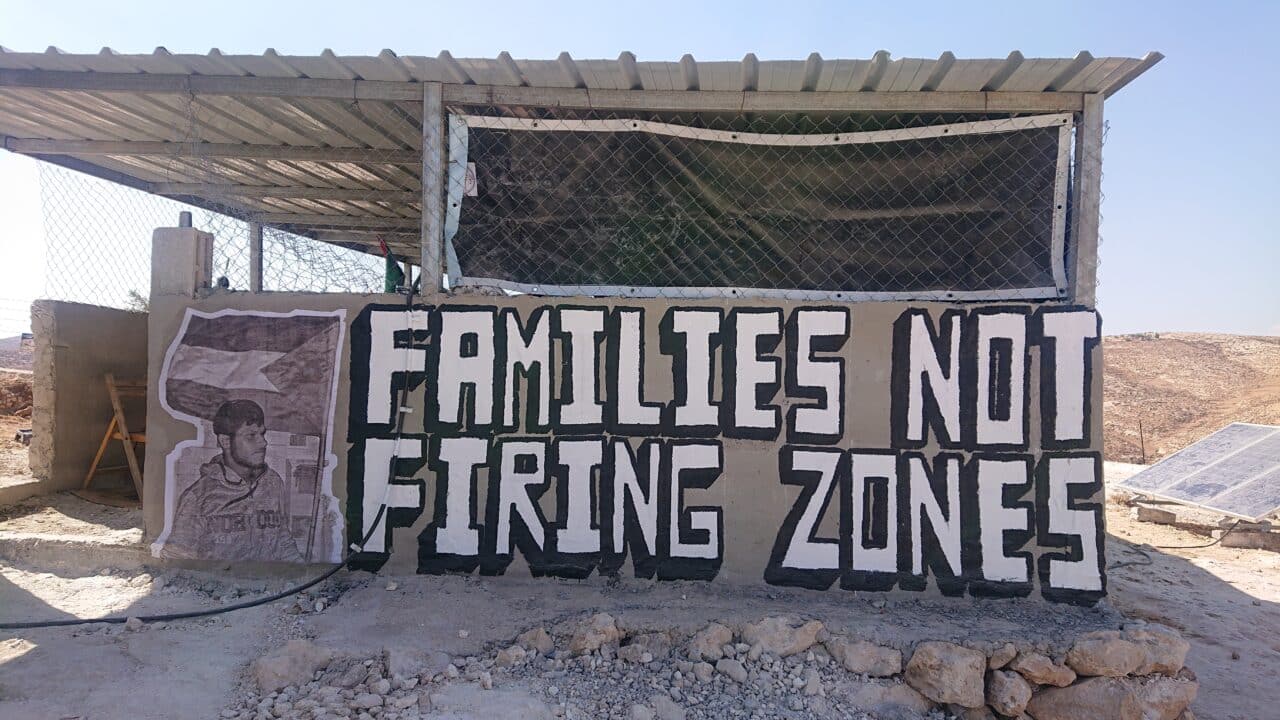
Unlawful escalation towards forcible displacement and ethnic cleansing in Masafer Yatta
On behalf of Youth of Sumud, we urgently alert you to a dangerous and unlawful escalation in Masafer Yatta, specifically within Firing Zone 918 in the occupied West Bank. On 18 June 2025, the Higher Planning Council issued a directive for the Firing Zone 918 to all its subcommittees authorizing the rejection of demolition objections…
-
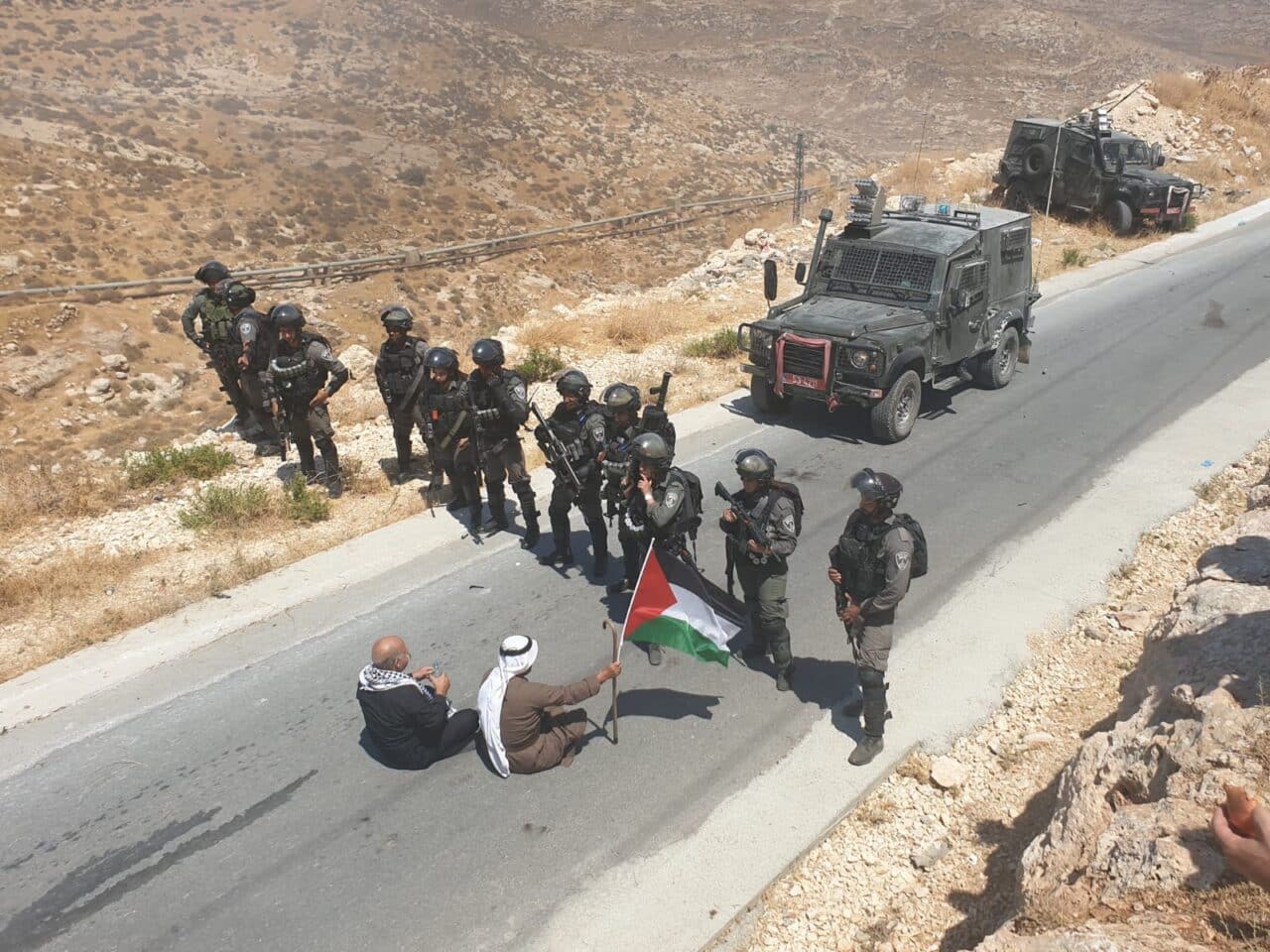
Statement from the Palestinian Popular Committees on Popular Civil Protection
Occupied Palestine – The Popular Committees for the Resistance of the Wall and Settlements, and Grassroots Organizations released a statement regarding “The Importance of Providing Popular Civil Protection for Palestinian Communities Facing the Risk of Displacement and the Rejection of the Normalization of the Occupation”. The popular committees for the resistance of the Wall and…
-
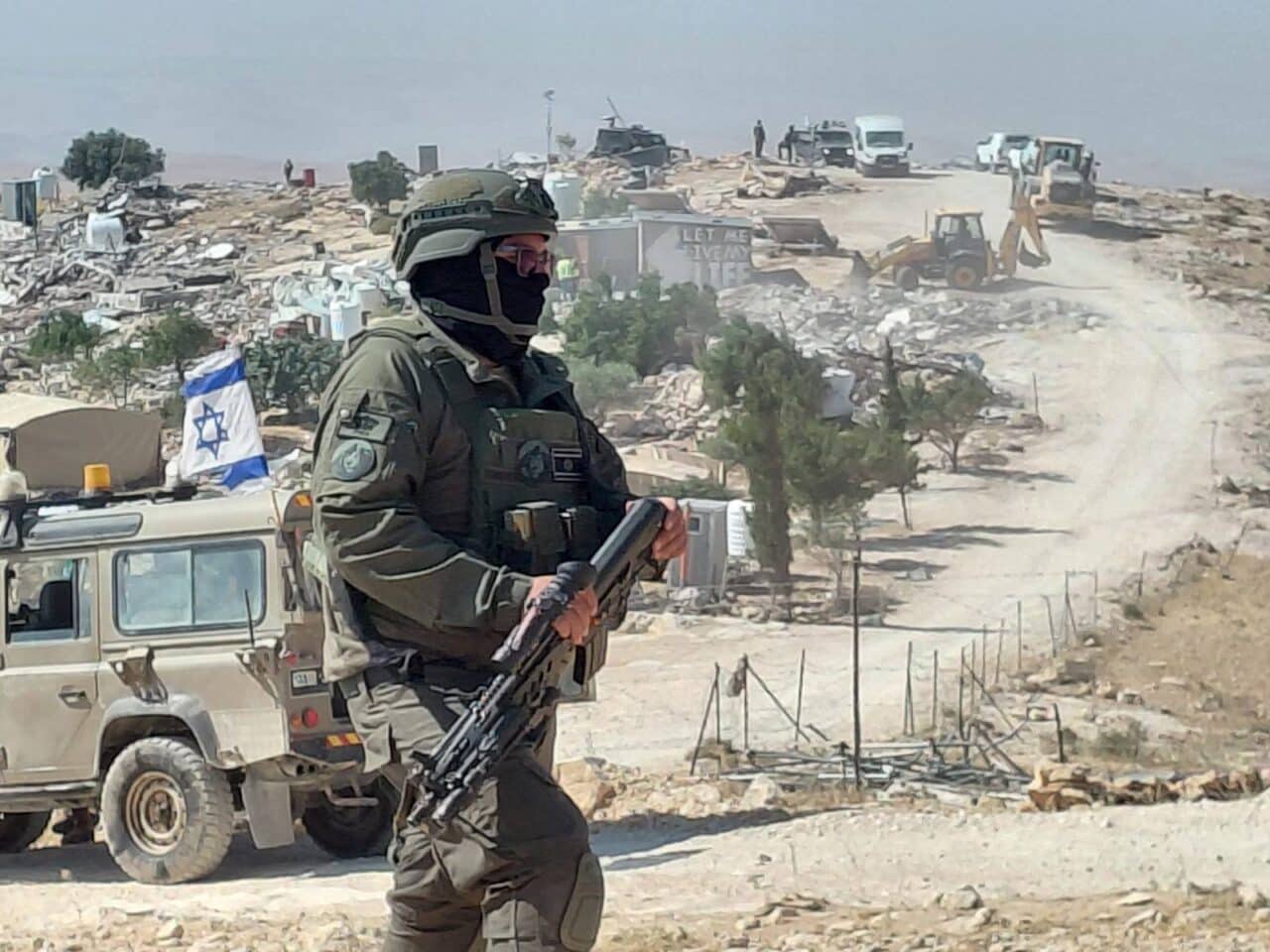
For immediate release – Irish activist set to return home as Israeli forces demolish again in Masafer Yatta
June 11, occupied Palestine – UK based, Irish national D. Murphy (70) is set to return to her home in Swansea today after having fought the unjust decision to deport her for ten days from within an Israeli prison. This morning, Israeli bulldozers have returned to Khalet Al-Daba’a, the West Bank village in the demolition-plagued…
-
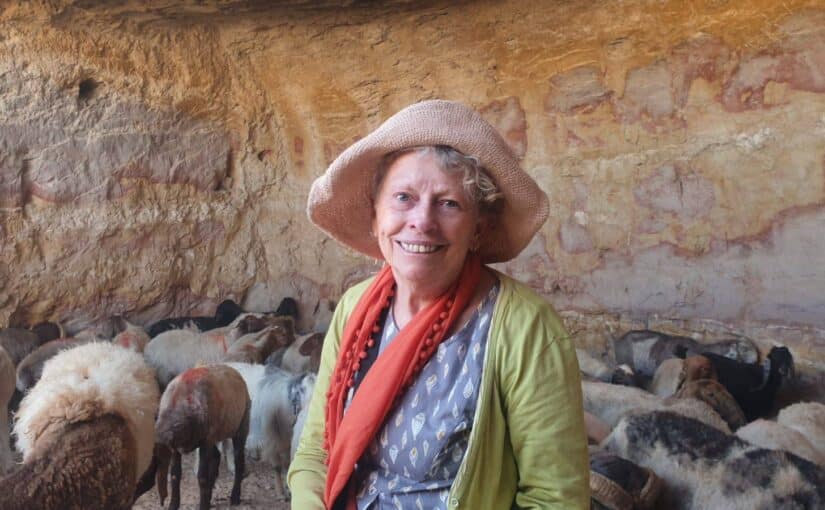
For immediate release — Israeli authorities deny legal counsel to Swansea-based Irish citizen fighting unjust deportation
June 5, occupied Palestine – Israeli authorities have processed Irish citizen, and UK resident, D. Murphy (70) without allowing her legal counsel nor informing her lawyer of the proceeding. Murphy, originally from Cork and based in Swansea since the early 80s, has been held in custody since June 1 when Israeli authorities issued an unjust deportation…
